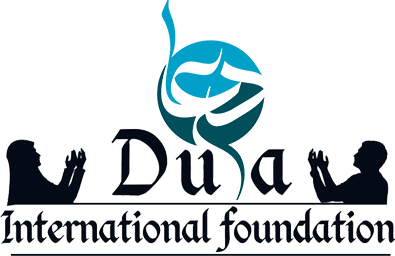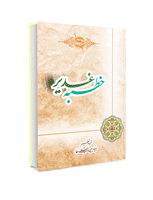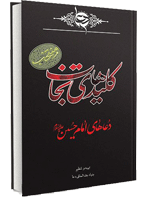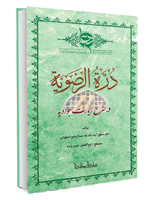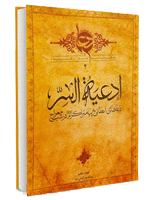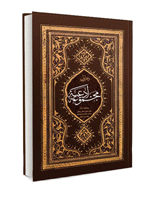- Prophet Muhammad (P.B.U.H&HF): Whenever one of you is needy and brings that to other people, he will not be satisfied. and Whenever someone is needy and brings that to Lord, he shall give him what he wants. sooner or later.
- Imam Sadiq (As.): Whenever you had tenderness in your heart, Pray. because your heart doesn't get tender unless it's pure.
- I told to Imam Baqir (A.S): “What is the meaning of “truly, Ibrahim was awwah and patient”? He replied: “Awwah means (the one who is) praying (to) and wailing (for God) a lot.””
- “Two people, who have acted alike, enter the heaven, but one of them sees the other one in a higher place. Then, he says: O’ Lord! How come has he a superior place in comparison to me while we acted alike? God the Almighty replies: “because he asked Me (whatever he needed) and you did not do that”.
- “The most knowledgeable person to God is the one who asks more from Him”
- “Whoever prays a lot, the angels say: This voice is familiar (to us) and this is the supplication which is accepted and this is the need which is provided”
-
The Holy Prophet (peace be upon him and his Household):
-
وَ لَوْ عَرَفْتُمُ اللَّهَ حَقَّ مَعْرِفَتِهِ لَزَالَتِ الْجِبَالُ بِدُعَائِكُم
If you knew god the way you should’ve known, Mountains definitely will be moved by your supplications. - Crying out of fear of God is the key to his mercy, it’s a sign for his acceptance and it’s a door to answering [supplications]
- Pray to God and believe in his answeres. But understand that God won't accept prays from an unwitting oblivious heart.
Instructions and achievements of supplication in Nahj al-Balaghah
بسم الله الرّحمن الرّحیم
Instructions and achievements of supplication in Nahj al-Balaghah
Author (s): Ebrahim Iqbal, Mehdi Momtahan, Sayed Mahdi Hosseini Milani
Translator and editor: AbdolQhadir Mojahid Ghaznavi
Summary
Supplication is the highest form of worship and the highest connection between a servant and God. Regarding this significant matter, the servants do not act consistently and do not have proper knowledge of the principles and manners of supplication, which as a result, may get confused and disappointed. Taking the divine prophets, Imams and true leaders as role models is a way forward in this path. The supplications of His Holiness, Imam Ali (PBUH) in Nahj al-Balaghah are a clear example and a suitable mean to achieve this purpose. By examining the manners of supplication, such as being at God's presence, beginning and ending it by mentioning and praising Him, the style of supplication such as being comprehensive in structure, and its subject such as being religious, moral, public and governmental interests, general blessings, limited finances, and other valuable results can be obtained.
Keywords:
Supplication, Imam Ali (PBUH), Nahj al-Balaghah, style, topic, achievement.
Problem statement:
One of the manifestations of worshiping God the Almighty is in supplication. On the other hand, servants benefit from supplication to reach a high level of nearness to God; They appreciate and praise him and ask him for their needs. This kind of worship and relationship have manners and instructions that knowing and using them helps for the improvement and progression of such a worship and relationship, while being ignorant with regard to them leads to low value and ineffectiveness of supplication and confusion and frustration of the supplicant.
Now, how the manner and instruction of supplication and apply it can be acquired? What matters should be supplicated for? What supplications are responded? Studying and researching this issue, which is related to majority of people, is very essential. But no research has been done to or has not been paid attention to regarding the above questions, and such an approach is unprecedented and new in its kind.
The Holy Qur'an and the supplications mentioned in it from the prophets and divine saints and the Sunnah of the Prophet of Islam (PBUH&HF) and the supplications of the Infallible Imams (PBUT) are the very appropriate examples and guides, and the servants can use these sources and these divine figures as their role models.
Imam Ali's supplications in Nahj al-Balaghah are a part of this knowledge and can be a guiding light for the servants on this path. In this article, the supplications of the Commander of Believers (PBUH) [positive supplications and not curses] are collected in Nahj al-Balaghah and according to the subject, are divided into five sections: religious and moral, governmental and political, jihad and war, public and general, personal and financial. Each section is reported and after a brief translation and explanation, its results and achievements are reviewed and retrieved with thematic, stylistic, and structural approaches to benefit the servants of God and those who are interested in.
Religious and moral prayers:
Some of the supplications of the Commander of Believers (PBUH) have more of a religious, educational and moral approach. Although all the supplications, words and actions of His Holiness are rooted in a certain belief, high knowledge and high morals. Examining these cases of supplications gives valuable results:
Supplication for obedience and asking for forgiveness.
…اسْتَعْمَلَنَا اللهُ وَإِيَّاكُم بِطَاعَتِهِ وَطَاعَةِ رَسُولِهِ، وعَفَا عَنَّا وَعَنْكُمْ بِفَضْلِ رَحْمَتِهِ.
“May Allah prompt us and you for His obedience and obedience of His Prophet, and forgive us and you by His great mercy.” (Nahjul-Balaghah, Sermon 190)
Translator: Because of summarizing the main article, we skip the results drawn by the author and leave it open for the dear readers to ponder upon the supplications and based on the concept and content of each quoted examples of Imam Ali’s supplications, draw their own conclusions.
Supplication for the hearts on the path of seeking the truth and souls’ endurance.
أَخَذَ اللهُ بِقُلُوبِنَا وَقُلُوبِكُمْ إِلَى الْحَقِّ، وَأَلْهَمَنَا وَإِيَّاكُمُ الصَّبْرَ!
“May Allah carry our hearts and your hearts towards the right/truth and may He grant us and you endurance.” (Ibid, Sermon 173)
Supplication to request God's pleasure and not being in need of anything other than Him.
اللَّهُمَّ أَنْتَ أَهْلُ الْوَصْفِ الْجَمِيلِ، وَالتَّعْدَادِ الْكَثِيرِ... فَهَبْ لَنَا فِي هذَا الْمَقَامِ رِضَاكَ، وَأَغْنِنَا عَنْ مَدِّ الاْيْدِي إِلَى مَن سِوَاكَ،(إِنَّكَ عَلى كُلِّ شَيْء قَدِيرٌ)!
“O God! You deserve handsome description and the highest esteem… So do grant us in this place Your satisfaction, and make us free from stretching hands to anyone other than You, as "Certainly, You are powerful over everything. " (Qur'an, 66:8). (Ibid, Sermon 91)
Supplication and asking for forgiveness due to some shortcomings.
اللَّهُمَّ اغْفِرْ لِي مَا أَنْتَ أَعْلَمُ بِهِ مِنِّي، فَإِنْ عُدْتُ فَعُدْ لي بِالْمَغْفِرَةِ .اللَّهُمَّ اغْفِرْ لِي مَا وَأَيْتُ مِنْ نَفْسِي، وَلَمْ تَجِدْ لَهُ وَفَاءً عِنْدي .اللَّهُمَّ اغْفِرْ لِي مَا تَقَرَّبْتُ بِهِ إِلَيْكَ [بِلِسَاني]، ثُمَّ خَالَفَهُ قَلْبِي .اللَّهُمَّ اغْفِرْ لِي رَمَزَاتِ الاْلْحَاظِ وَسَقَطَاتِ الاْلْفَاظِ وَشَهَوَاتِ الْجَنَانِ ، وَهَفَوَاتِ اللِّسَانِ.
“O God! Forgive me what You know about me more than I do. If I return (to the sins) You return to forgiveness. O God forgive me what I had promised to myself but You did not find its fulfilment with me. O God forgive me that with what I sought nearness to You with my tongue but my heart opposed and did not perform it. O God forgive me winking of the eye, vile utterances, desires of the heart and errors of speech.” (Ibid, Sermon 78)
Although this sermon and this supplication is personal and with a singular structure, and it appears to refer to Imam Ali (PBUH) himself, but by looking carefully at his other personal supplications that do not include such cases and also the Imam's infallibility, it can be concluded that he is in the position of teaching to his companions, friends and audience, and it seems that he wants to teach that in case of having such faults and mistakes, the servants should supplicate in such a form and method.
Asking for well-being in religion and body.
نَحْمَدُهُ عَلَى مَا كَانَ، وَنَسْتَعِينُهُ مِنْ أَمْرِنا عَلَى مَا يَكُونُ، وَنَسْأَلُهُ الْمُعَافَاةَ في الاْدْيَانِ، كَمَا نَسَأَلُهُ الْمُعَافَاةَ فِي الاْبْدَانِ
“We praise Him for what has happened and seek His succor in our affairs for what is yet to happen, and we beg Him for safety in the faith just as we beg Him for safety in our bodies.” (Ibid, Sermon 99)
Governmental and political supplications:
Imam Ali (PBUH) being the Commander of the Believers, the Imam and Leader of the Muslims sometimes supplicates for his military commanders and operatives. These cases are reported in the section of Nahj al-Balaghah's letters and mostly at the end of them and after his governmental and monarchical [and political] orders. These supplications are categorized as follows:
Supplication for the governor of Mecca.
وَفَّقَنَا اللهُ وَإِيَّاكُمْ لِمحَابِّهِ
“May Allah grant us and you promptitude for seeking His love” (Ibid, Letter 67)
Supplication for the governor of Medina.
… وَإِنَّا لَنَطْمَعُ فِي هذَا الاْمْرِ أَنْ يُذَلِّلَ اللهُ لَنَا صَعْبَهُ،يُسَهِّلَ لَنَا حَزْنَهُ، إِنْ شَاءَ اللهُ، وَالسَّلاَمُ علَيْكَ
“…And we only desire Allah to resolve for us its hardships and to level for us its unevenness, if Allah wills.” (Ibid, Letter 70)
Supplication for relief and facilitation in government affairs.
أَسْأَلُ اللهَ تَعَالى أَنْ يَجْعَلَ لِي مِنْهُمْ فَرَجاً عَاجلاً،…
“I ask Allah the Sublime, to give me early relief from them…” (Ibid, Letter 35)
Supplication for success in government affairs.
وَأَنَا أَسْأَلُ اللهَ بِسَعَةِ رَحْمَتِهِ، وَعَظِيمِ قُدْرَتِهِ عَلَى إِعْطَاءِ كُلِّ رَغْبَة، أَنْ يُوَفِّقَنِي وَإِيَّاكَ لِمَا فيهِ رِضَاهُ مِنَ الاْقَامَةِ عَلَى الْعُذْرِ الْوَاضِحِ إِلَيْهِ وَإِلَى خَلْقِهِ، مَعَ حُسْنِ الثَّنَاءِ فِي الْعِبَادِ، وَجَمِيلِ الاْثَرِ فِي الْبَلاَدِ، وَتَمَامِ النِّعْمَةِ، وَتَضْعِيفِ الْكَرَامَةِ، وَأَنْ يَخْتِمَ لِي وَلَكَ بالسَّعَادَةِ وَالشَّهَادَةِ، إِنَّا إِلَيْهِ رَاغِبُونَ، وَالسَّلاَمُ عَلَى رَسُولِ اللهِ ً. صَلَّى اللّهُ عَلَيْهِ وَ آلِهِ الطَّيِّبينَ الطّاهِرينَ وَ سَلَّمَ تَسْليماً كَثيراً.
“And I ask Allah through the vastness of His mercy and the greatness of His power of giving a good inclination that He may prompt me and you to advance a clear plea before Him and His creatures in a manner that may attract His pleasure along with handsome praise among the people, good effect in the country, an increase in prosperity and a heightening of honor; and that He may allow me and you to die a death of virtue and martyrdom. Surely, we have to return to Him. Peace be on the Messenger of Allah - may Allah shower His blessings and plentiful salutations on him and his pure and chaste Family/Descendants.” (Ibid, Letter 53; His famous Covenant letter to Malik al-Ashtar appointing him as the governor of Egypt)
Jihadi and war supplications
Some of the Commander of the Believer’s (PBUH) supplications have the theme and form of jihad and war relating his requests from God when he intends to start his journey towards war, reaching the opposing army and prior the conflict, as well as when lining up the soldiers and entering the military campaign listed as follows:
Supplication at the time of pro-war song and facing the enemy.
اللَّهُمَّ إِلَيْكَ أَفْضَتِ الْقُلُوبُ، وَمُدَّتِ الاْعْنَاقُ، وَشَخَصَتِ الاْبْصَارُ، وَنُقِلَتِ الاْقْدَامُ، وَأُنْضِيَتِ الاْبْدَانُ. اللَّهُمَّ قَدْ صَرَّحَ مَكْنُونُ الشَّنَآنِ، وَجَاشَتْ مَرَاجِلُ الاْضْغَانِ. اللَّهُمَّ إِنَّا نَشْكُوا إِلَيكَ غَيْبَةَ نَبِيِّنَا، وَكَثْرَةَ عَدُوِّنَا، وَتَشَتُّتَ أَهْوَائِنَا. (رَبَّنَا افْتَحْ بَيْنَنَا وَبَيْنَ قَوْمِنَا بِالْحَقِّ وَأَنْتَ خَيْرُ الْفَاتِحِينَ)
“O God! towards You Hearts are drawn to You, necks stretched, eyes are fixed, steps are in motion and bodies have turned lean. O God! Hidden animosity has become manifest and the cauldrons of malice are boiling. O God! We complain to You of the absence of our Prophet, the numerousness of our enemy and the diffusion of our passions. “Our Lord! Decide between us and between our people with truth, and You are the Best of Deciders”.”
(Ibid, Letter 15)
Supplication for the warriors in frontline.
During the battle of Siffin, the Commander of the Believers (PBUH) heard some of his men abusing the Syrians, then he said:
إِنِّي أَكْرَهُ لَكُمْ أَنْ تَكُونُوا سَبَّابِينَ، وَلكِنَّكُمْ لَوْ وَصَفْتُمْ أَعْمَالَهُمْ، وَذَكَرْتُمْ حَالَهُمْ، كَانَ أَصْوَبَ فِي الْقَوْلِ، وَأَبْلَغَ فِي الْعُذْرِ، وَقُلْتُمْ مَكَانَ سَبِّكُمْ إِيَّاهُمْ: اللَّهُمَّ احْقِنْ دِمَاءَنَا وَدِمَاءَهُمْ، وَأَصْلِحْ ذَاتَ بَيْنِنَا وَبَيْنِهِمْ، وَاهْدِهِمْ مِنْ ضَلاَلَتِهِمْ، حَتَّى يَعْرِفَ الْحَقَّ مَنْ جَهِلَهُ، وَيَرْعَوِيَ عَنِ الْغَيِّ وَالْعُدْوَانِ مَنْ لَهِجَ بِهِ.
“I dislike you to be insulters, but if you describe their deeds and recount their situations, it would be a better mode of speaking and a more convincing way of arguing. Instead of abusing them you should say, "O Allah! Save our blood and their blood, produce reconciliation between us and them, and lead them out of their misguidance so that he who is ignorant of the truth may know it, and he who inclines towards rebellion and revolt may turn away from it.” (Ibid, Sermon 206)
Supplication when engaged in war.
When the Commander of the Believers (PBUH) decided to fight the enemy face to face at Siffin he said:
اللَّهُمَّ رَبَّ السَّقْفِ الْمَرْفُوعِ، وَالْجَوِّ المَكْفُوفِ،... وَرَبَّ الجِبَالِ الرَّوَاسِي الَّتي جَعَلْتَهَا لِلاْرْضِ أَوْتَاداً، وَلِلْخَلْق اعْتِماداً. إِنْ أَظْهَرْتَنَا عَلَى عَدُوِّنَا فَجَنِّبْنَا الْبَغْيَ وَسَدِّدْنَا لِلْحَقِّ، وَإِنْ أَظْهَرْتَهُمْ عَلَيْنَا فَارْزُقْنَا الشهَادَةَ وَاعْصِمْنَا مِنَ الْفِتْنَةِ.ِ
“O God! Sustainer of the high sky and the suspended firmament …O Sustainer of strong mountains which Thou hast made as pegs for the earth and (a means of) support for people. If You give us victory over our enemy, save us from excesses and keep us on the straight path of truth. But if You give them victory over us, then grant us martyrdom and save us from mischief.” (Ibid, Sermon 171)
General supplications
Some supplications of Nahj al-Balaghah are all-inclusive and general, due to the fact that they are not limited to a specific person or specific group, but include numerous and usual people in general; Such as supplicating for rain, which is beneficial for many people and even animals, plants, and nature, or supplicating for travelers and babies.
Supplication for rain
اللَّهُمَّ قَدِ انْصَاحَتْ جِبَالُنَا، وَاغْبَرَّتْ أَرْضُنَا، وَهَامَتْ دَوَابُّنَا، وَتَحَيَّرَتْ في مَرَابِضِهَا وَعَجَّتْ عَجِيجَ الثَّكَالَى عَلَى أَوْلاَدِهَا، وَمَلَّتِ التَّرَدُّدَ في مَرَاتِعِهَا، وَالحَنِينَ إِلَى مَوَارِدِهَا . اللَّهُمَّ فَارْحَمْ أَنِينَ الاْنَّةِ وَحَنِينَ الْحَانَّةِ اللَّهُمَّ فَارْحَمْ حَيْرَتَهَا فِي مَذَاهِبِهَا، وَأَنِينَهَا في مَوَالِجِهَا... الی آخر.
O God! Surely our mountains have dried up and our earth has become dusty. Our cattle are thirsty and are bewildered in their enclosures. They are moaning like the moaning of mothers for their (dead) sons. They are tired of going to their meadows and longing for their watering places. O God! Have mercy on the groan of the groaning and yearn of the yearning. O God! Have mercy on their bewilderment on their passages and their groaning in their yards…etc. (Ibid, Sermon 115)
In another supplication for rain, in sermon 143, he indicates about the cause of lack of rain gives a detailed explanation, which we quote a paragraph of his supplication from the sermon as follows:
اللَّهُمَّ إِنَّا خَرَجْنَا إِلَيْكَ مِنْ تَحْتِ الاْسْتَارِ وَالاْكْنَانِ، وَبَعْدَ عَجِيجِ الْبَهَائِمِ وَالْوِلْدَانِ، رَاغِبِينَ فِي رَحْمَتِكَ، وَرَاجِينَ فَضْلَ نِعْمَتِكَ، وَخَائِفِينَ مِنْ عَذَابِكَ وَنِقْمَتِكَ. اللَّهُمَّ فَاسْقِنَا غَيْثَكَ، وَلاَ تَجْعَلْنَا مِنَ الْقَانِطِينَ، وَلاَ تُهْلِكْنَا بِالسِّنِين، وَلاَ تُؤَاخِذْنَا )بِمَا فَعَلَ السُّفَهَاءُ مِنَّا (يَا أَرْحَمَ الرَّاحِمِينَ.
“O God! We have come out to Thee from under the curtains and coverings (of houses) when the beasts and children are crying, seeking Your Mercy, hoping for the generosity of Your bounty and fearing Your chastisement and retribution. O God! Give us to drink from Your rain and do not disappoint us, nor kill us by years (of drought) nor punish us “..for what the foolish among us have committed” (7:155), O the Most Merciful of all!”
Supplication for travel
supplication during travel is another subject of Nahj al-Balaghah sermons.
When the Commander of the Believers (PBUH) decided to march towards Syria (ash-Sham) he made this supplication when mounting the horse and placing his foot in the stirrup:
اللَّهُمَّ إِنَّي أَعُوذُ بِكَ مِنْ وَعْثَاءِ السَّفَرِ، وَكَآبَةِ المُنْقَلَبِ، وَسُوءِ المَنظَرِ فِي الاْهْلِ وَالمَالِ والْوَلَدِ . اللَّهُمَّ أَنْتَ الصَّاحِبُ في السَّفَرِ، وَأَنْتَ الْخلِيفَةُ فِي الاْهْلِ، وَلاَ يَجْمَعُهُما غَيْرُكَ، لاِنَّ الْمُسْتَخْلَفَ لاَ يَكُونُ مُسْتَصْحَباً، وَالمُسْتَصْحَبُ لاَ يَكُونُ مُسْتَخْلَفاً.
“O God, I seek Your protection from the hardships of journey, from the grief of returning and from the scene of devastation of property and men. O God, You are the companion in journey and You are one who is left behind for (protection of the) family. None except You can do these two (at the same time) because one who is left behind cannot be a companion in journey nor one who is in company on a journey can at the same time be left behind.” (Ibid, Sermon 46)
Teaching how to supplicate at the birth of a baby.
وهنَّأَ بحضرته عليهالسلام رجل رجلاً بغلام ولد له فقال له: لِيَهْنِئْكَ الْفَارسُ. فقال عليهالسلام : لاَ تَقُلْ ذلِكَ، وَلكِنْ قُلْ: شَكَرْتَ الْوَاهِبَ، وَبُورِكَ لَكَ فِي الْمَوْهُوبِ، وَبَلَغَ أَشُدَّهُ، وَرُزِقْتَ بِرَّهُ.
Someone congratulated another person in the presence of the Commander of the Believers (PBUH), on the birth of a son saying: Congratulations for the birth of horse rider. Then the Commander of the Believers (PBUH), said: “Do not say so; but say:” You have occasion to be grateful to Allah, the Giver, and be blessed with what you have been given. May he attain full life and may you be blessed with his devotion. (Ibid, Hadith 354)
Personal and financial supplications
A few of His supplications have a personal theme, but not every person, rather personalities like the Holy Prophet (PBUH&HF) and Salman Farsi, and one supplication has a material and financial approach, but very general and to the extent of preserving one's reputation and status, while expressing as being needy to anything other than God, although its educational aspect should not be overlooked, as well.
Supplication for the Messenger of Islam (PBUH&HF):
In one case, His Holiness, makes his explicit supplication for the Messenger of Islam (PBUH&HF), although commemoration of him (PBUH&HF) and reference to the Sunnah and hadith of the Messenger of God (PBUH&HF) are echoed throughout Nahj al-Balaghah. This case of his supplication is a part of sermon 106.
Asking from the Messenger of God (PBUH&HF) to supplicate for him.
In one case, Imam Ali (PBUH) sought requests from the Messenger of Allah, (PBUH&HF); to prayer for him. This was during the funeral ablution of the blessed body of the Holy Prophet and shrouding him.
…بِأَبِي أَنْتَ وَأُمّي! اذْكُرْنَا عِنْدَ رَبِّكَ، وَاجْعَلْنَا مِنْ بَالِكَ!
“…May my father and my mother die for you; Remember us before your Lord, and take care of us.” (Ibid, Sermon 234)
Supplication for a special person.
Only once, in the case of one person, that is Salman, he has supplicated and prayed, although in an indirect way anonymously, as he mentions him with the word "so-and-so".
لله بلادُ فُلاَن، فَلَقَدْ قَوَّمَ الاْوَدَ، وَدَاوَى الْعَمَدَ، وَأَقَامَ السُّنَّةَ، وَخَلَّفَ الْفِتْنَةَ!
“May Allah reward such and such man who straightened the curve, cured the disease, abandoned mischief and established the sunnah. He departed (from this world) with untarnished clothes and little shortcomings.”
(Ibid, Sermon 227)
Supplication for financial and material matters.
اللَّهُمَّ صُنْ وَجْهِي بِالْيَسَارِ، وَلاَتَبْذُلْ جَاهِيَ بِالْاِقتَارِ، فَأَسْتَرْزِقَ طَالِبِي رِزْقِكَ، وَأَسْتَعْطِفَ شِرَارَ خَلْقِكَ،وَأُبْتَلَى بِحَمْدِ مَنْ أَعْطَانِي، وَأُفْتَتَنَ بِذَمِّ مَنْ مَنَعَنِي، وَأَنْتَ مِنْ وَرَاءِ ذلِكَ كُلِّهِ وَلِيُّ الاْعْطَاءِ والْمَنْعِ، (إنَّكَ عَلى كُلِّ شَيء قَدِيرٌ)
O God! Preserve (the grace of) my face with easiness of life and do not disgrace my countenance with destitution, lest I may have to beg a livelihood from those who beg from You, try to seek the favor of Your evil creatures, engage myself in praising those who give to me, and be tempted in abusing those who do not give to me, although behind all these You are the master of giving and denying, as “Verily You over all things, are the All-powerful”.”
(Ibid, Sermon 224)
Conclusions
This research gives the following results:
Servants should also have role models and guides for how to supplicate, which among them the Infallible prophets and Imams (PBUT) are the best. Because by the grace of God, they have reached a position and a stage where their behavior and speech are right without any mistake.
The supplication should be directed to God and its beginning, middle and end should be accompanied by the mentioning and praising of God; Because God is the Creator of all beings and all people, and all affairs are under His absolute authority.
It is better for the requested subject of supplications to be of religious and spiritual matters, general usefulness, public benefit; Although it is possible to supplicate and pray for financial affairs as far as the belief and soul are not negatively affected.
Important and general supplications should be plural in wording and structure, because in some cases, God's care for the group might be more than for a single person, and the blessings of supplication for the supplicant might also be greater.
If the customs and instructions of supplication are observed, it will be answered by God's will, as all the supplications of Imam Ali (PBUH) in Nahj al-Balaghah were fulfilled.
